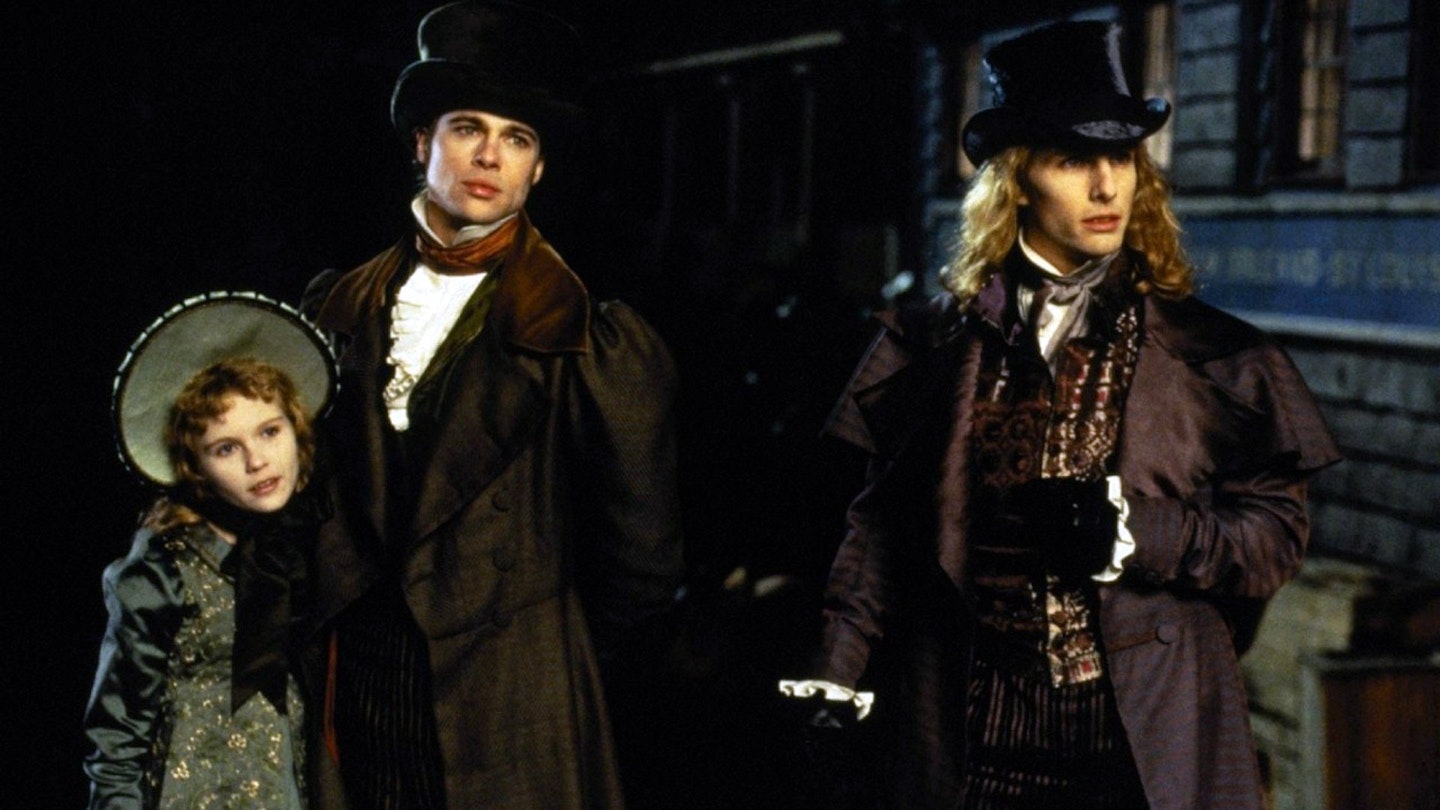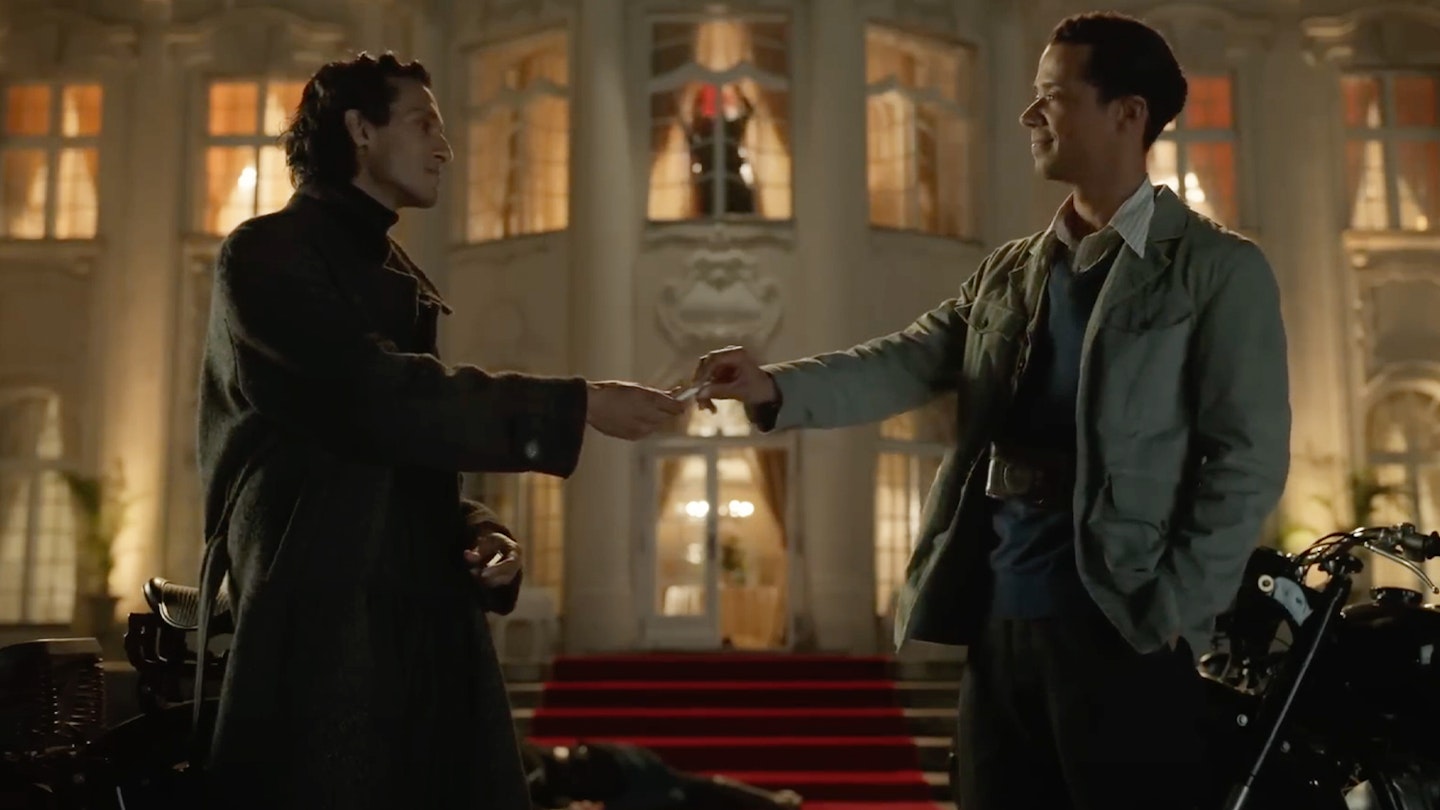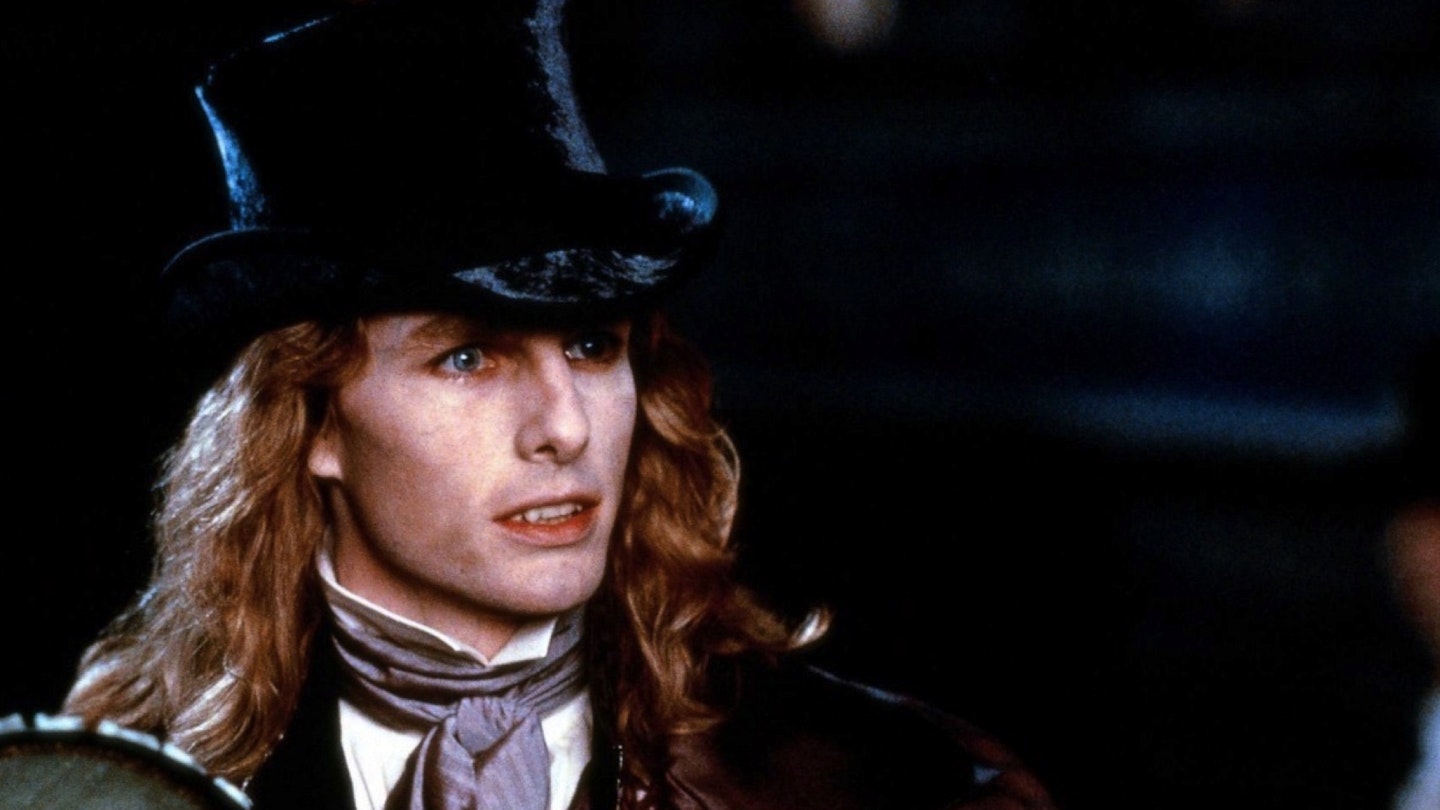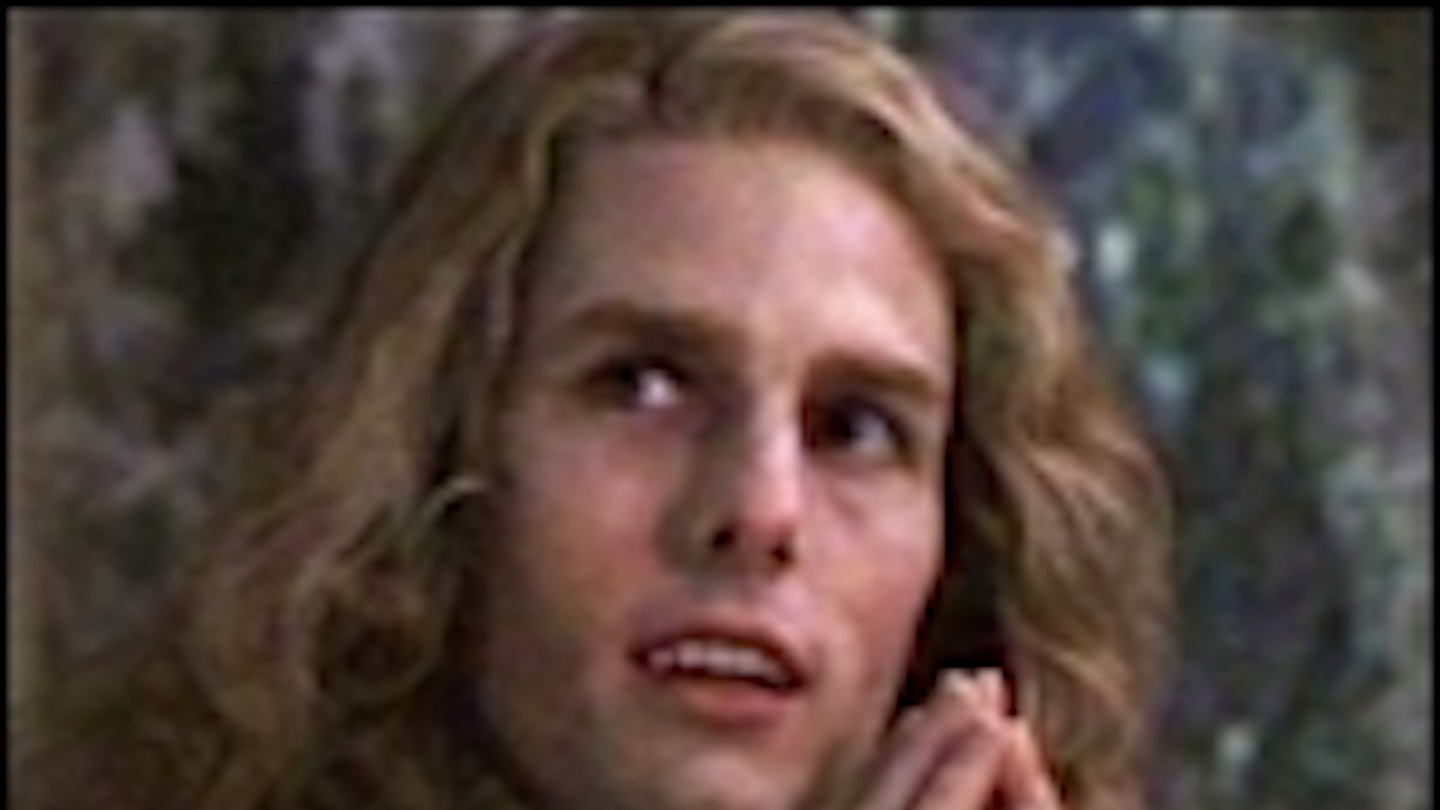Eight minutes in, and bereaved plantation boss Louis (Brad Pitt) is whipped into the night sky to have his blood sucked. No messing about. This is no conventional horror flick told from the point of view of mere mortals thwarting forces of supernatural evil with pointed sticks; rather, it is a morbidly fascinating insight into the lifestyle of the undead that kicks in at minute eight, when aristocratic, fun-having blonde Lestat (Cruise erasing Top Gun from your mind forever) gets his teeth into Louis.
Ordinary humans become little more than visiting meat as the pair fop around New Orleans — and later, Europe — in search of a corpsular fix. The “gift” of eternal life merely makes Louis bored, restless and appalled (initially loathe to kill people, he gorges, pathetically, on rats and poodles). “You live like this?” he demands. “I wouldn’t call it living . . .” comes Lestat’s camp reply.
Herein lies the film’s allure: in the humdrum nature of immortality, the everyday niggles of vampirism, the trials and tribulations of a nocturnal borgeoisie doomed to mince about the earth forever. It is, in fact, a close-up domestic drama played as if it were a matter of life and death.
It's a homoerotic yarn — for director Jordan, a chance to mix Company Of Wolves with The Crying Game. That it leaps off the screen is due chiefly to the affectionate gothic splendour of the production design (flaming drapes, underground catacombs, horse-drawn carriages), ever at odds with the kitchen sink nature of the story, itself deliciously laced with pan-sexual innuendo (a pair of twin boys are offered to Lestat as a sweetener; women are drained without lust; Dunst’s orphan Claudia treats Louis as her mother; male vampires are considered “beautiful”).
Cruise moves through the film with magnificent, malevolent grace (is that the sound of once-affronted novelist Anne Rice eating her words in the background?), and our horror derives not from the constant blood-letting — as matter-of-fact for us as it is for the vampires — but from the menace of constant in-fighting precipitated by Dunst and later Banderas (transfixing as leader of a luvvy vampire troupe in Paris) and, of course, the sheer, nameless terror of eternal life.
The final conceit on the Golden Gate Bridge is the film’s one nod to trad, modern-day Hollywood mores. Otherwise, Interview is an unlikely feast that makes Branagh’s Frankenstein and Coppola’s Dracula seem like expensive, bloodless follies.



